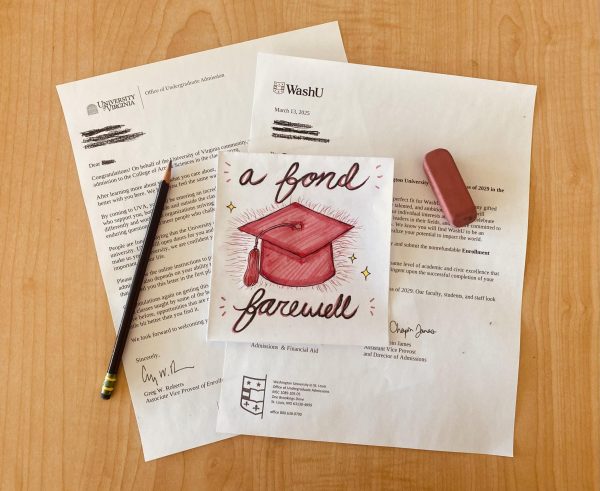
The time for juniors to apply to universities, or otherwise determine their life after high school, is fast approaching. It is very common for applicants to look at all colleges’ low acceptance rates and feel hopeless about their likelihood of being accepted. The good news is that, if you too are beginning to question your chances of admission, you aren’t alone. The majority of juniors find themselves confused and uncertain about the college admissions process, and those who aren’t concerned generally have an impressive amount of confidence. This article aims to assuage concerns for current juniors and help increase the number of students who feel confident about applying to universities.
When it comes to writing admissions essays, it is important to understand that it isn’t a test, there are no right answers; it’s a sales pitch in written form. Why are you special? What is your story? Why does this college want you, and why do you want it? These are the questions to think about when you are writing your essays. The moment an admissions officer reads your essay and thinks, “I want to meet this person,” you have accomplished what you needed to.
Colleges want to ensure that their students fit the university. They want to know if you would be a good fit for their program, or increase the number of diverse perspectives within their institution.
Highly qualified applicants get rejected from Ivy League Schools, not because prestigious universities only accept people with unattainably perfect transcripts, but because, while some applicants may be exemplary achievers, for a variety of possible reasons, the Ivy League School didn’t think those people embodied the university standard they were looking for. Just because an applicant has talent doesn’t mean they match the same ethical and personal qualities one certain university is looking for. By that same token, it also does not mean you are not worthy of a university if an admissions officer passes on you. Different people are looking for different things, and human error or biases are variables that cannot be eliminated in the college admissions process without major repercussions.
At the end of the day, it is important to understand that rejections are not as big of a deal as they seem. Getting rejected doesn’t reflect your quality as an individual; more often than not, it reflects the admissions officers’ preferences.
It is also best not to have a dream school. Myself and many of my peers have experienced pressure from adults to have a dream school because it makes for conversation, but a dream school only opens you up to disappointment, especially since admissions become highly subjective at more prestigious colleges and universities. My recommendation is to create a list of five or more schools that you really want to go to, the more the better, within reason, and apply to them as best as you can. When waiting for letters, don’t pin your hopes on just one school.
Oabiloe Kelly, a graduating senior and future University of Southern California student who, like many of his peers, had a stressful experience applying to universities, expressed that his biggest regret was “applying to too many safeties” — a school with a high likelihood of acceptance for an individual. This was likely because a lot of people think they should apply to one or two selective colleges and several safeties, but I would recommend quite the opposite. Applying to a lot of safety schools doesn’t guarantee a lot of opportunities, it just ensures that you have a lot of acceptances. The goal is to apply to one or two safeties you know you can get into, and will likely have a good experience at, while spending most of your time on more selective schools.
Kelly also emphasizes the importance of writing application essays with heart: “Everyone has a unique story to tell, you just have to find the best way to tell your[s].” When asked how he decided which college to choose, Kelly explained that his counselor recommended it after he explained what he was looking for in a college. Kelly recommends everyone “talk to their counselor through the process” so they can ensure they are getting the best opportunities and colleges for them.
Junior Finn Jorgensen explains that, as a future college applicant, the application cycle can be stressful and unknown. Jorgensen’s greatest concerns are how much more “competitive colleges are now,” “timing college essays,” and “not getting in.” He expressed looking forward to “[forming] connections, [making] new friends, living alone, … learning about environmental sciences, [and having the] opportunity to make an impact.” Jorgensen’s concerns and wants are important for reference because they embody the typical draws of the college experience, and the anxious uncertainty that comes with admissions. To address several of Jorgensen’s points, the timing of college essays is very important. Many people wait too long to get started on them when it’s best to get ahead. A solid schedule is to write your essays in the summer; the official essay prompts don’t come out until August 1, but they usually don’t change much, so you can get an even better head start in June or July.
Researching colleges is also very important. Colleges are a lot more than their acceptance rate or their prestige. Research the school culture, students’ takeaways from various programs, the programs you care the most about, the rankings by major instead of overall rankings, and overall what makes the school unique. This process will tell you a lot more about whether a college is a good fit for you, as well as providing you with useful, specific information to reference in your essays.
The next concern of Jorgensen’s is a concern almost everyone who has looked into the admissions process is aware of: dwindling acceptance rates. One commonly ignored reason for acceptance rates decreasing is that admission rates haven’t been able to keep up with the rapidly increasing number of applicants. Additionally, acceptance rates can be very misleading; in fact, several universities intentionally try to drive down their acceptance rates using a variety of methods.
Acceptance rates may be going down, and the college admissions process may seem more competitive than ever, but the idea that it has become impossible or even improbable to be accepted isn’t as true as it may seem. Admission depends on how prepared you are and what you write about in your application. Hopefully, this article helps you feel more confident and reassured when it comes time to apply to university.



































